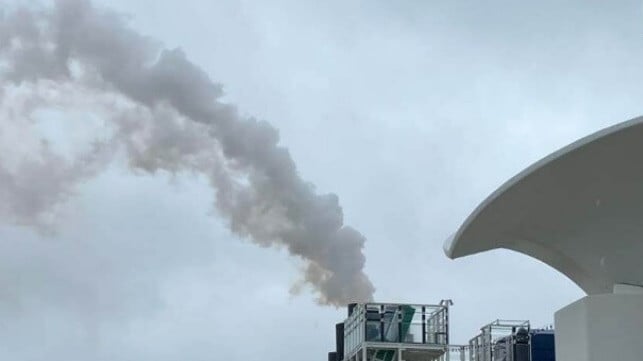Denmark Bans Scrubber Discharge While Working Toward a Baltic-North Sea Ban

Denmark is joining the growing list of countries placing a ban on the discharge of scrubber discharge into its territorial waters. A new bill introduced in the Folketing (Danish Parliament) comes seven months after a political agreement was reached on the measure and is being positioned as a step while Denmark works toward a ban reaching across the broader region.
Scrubber water is a residual product that is formed when ships use “open scrubbers” to clean their exhaust gas of sulfur. The exhaust is cleaned by washing the smoke with a shower, after which the dirty scrubber water is discharged into the marine environment. Demark will ban this discharge while also tightening the restrictions on the so-called “close loop scrubber” where the wash water is stored for discharge.
"Scrubber water is a significant source of environmentally hazardous substances in our marine environment,” said Magnus Heunicke, Minister of the Environment, announcing the new bill. “Once the substances have entered the marine environment, they break down very slowly, and they accumulate on the seabed and in the ocean's food chains. It is serious for both life in the sea and can also be serious for us humans.”
The new law effective July 1, 2025, will put an end to the discharge of environmentally hazardous scrubber water into Danish territorial waters, which extend to 14 nautical miles from the Danish coast. For ships using closed-loop scrubbers, the ban enters into force on July 1, 2029.
According to the Minister, scrubber wash water has contributed to excessively high levels of several heavy metals and tar substances such as lead, cadmium, anthracene, and benz(a)pyrene in the marine environment. Heavy metals and tar substances he said accumulate on the seabed and in the ocean's food chains and end up, for example, in herring and thus on the dining tables of many Danes.
The bill expects that it will decrease discharges of, among other things nickel with up to 20 percent and anthracene with seven percent. Ships will be required either to use low-sulfur fuel or closed scrubbers. The bill also tightens the restrictions to ensure that the residual product from the closed scrubber must be delivered to the ports' reception facilities.
In taking these steps, Denmark joins more than a dozen countries around the world that have already placed restrictions on scrubber discharge. Neighboring countries including Belgium, Norway, and Germany have taken similar steps while Frace has limits in some port areas.
Denmark notes that outside the 14 nautical mile limit the waters are controlled by international regulation. While it cannot enforce its rules on international waters, they note Denmark is simultaneously working for a similar ban in the Baltic and North Sea through the regional sea conventions HELCOM and OSPAR with a view to regulation under the auspices of the UN International Maritime Organization (IMO).
